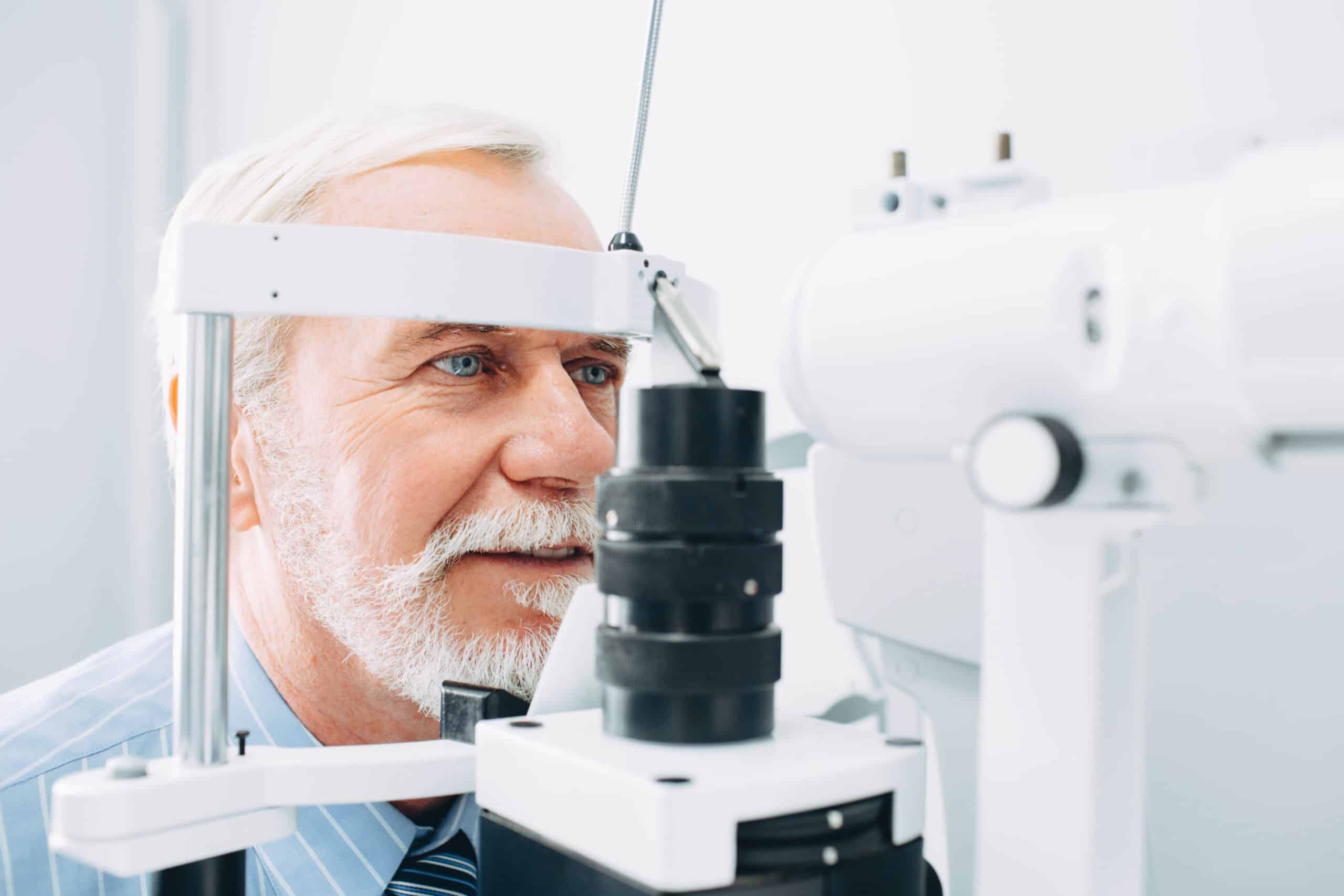As people age, their eyes often become drier and less able to produce moisture on the inside of the eye. What causes this? Our eyes’ lenses tend to thicken with age, which partly blocks the passage of tears from our eyes to the inner surface of the eye where they are needed.
The lens is a part of your eye that helps focus light as it enters your eye onto an area at the back called the retina, which converts light into electronic signals for transmission along nerve fibers in your optic nerve. These images are then transmitted to your brain and interpreted as vision.
Aging affects the eyes to a significant extent. Several changes occur with age that can cause problems from dry eye to macular degeneration.
5 Ways Aging Affects the Eyes
1. Changes in the Lenses
If your lenses thicken with age, the degree of vision correction needed to ensure the image at the back of your eye is focused changes in tandem, which is why older people may need stronger prescriptions. This could also lead to the development of conditions like astigmatism that require more complex lens shapes or vision correction needs.
2. Changes in Moisture Levels
Aging can cause dry eye, pain, and irritation. It can be caused by many factors, including tears not draining correctly, problems with glands responsible for producing tears, or other eye-related diseases or disorders. While this is often just a matter of requiring eye drops for irritation, it can lead to damage if the eyes are perpetually dry.
3. Decreased Night Vision
Another sign of aging is decreased night vision. It is the result of desensitization of the cells responsible for low-light detection in the retina that is often an unstoppable consequence of cell decay throughout the body. People can compensate by avoiding activities like driving at night, as well as using more light throughout their home to ensure they can see what they need to. Severe degradation of these cells may require surgical intervention.
4. Double Vision
One more sign of aging is diplopia, the word for double vision. This occurs when both eyes are sending signals to the brain trying to show two different images, which can cause problems with depth perception and make you dizzy. Diplopia occurs when age changes how the brain processes visual information from both eyes into a single image. It’s also possible that one or both eyes excessively focus on near objects, which can cause double vision when looking at far-off things, especially under low light levels.
5. Change in the Cornea
An older person’s cornea may become cloudy with deposits caused by diseases like glaucoma or external factors like infections, allergies, or even skin damage. Cataracts, as this clouding effect is known, can be solved with lens replacement surgery with a variety of different techniques.
Eye Care in Boca Raton, FL
The aging process affects nearly every aspect of our lives, including our physical and mental capabilities. Some of these changes are unavoidable, such as aging and the natural loss of ability to see at night. But many changes can be prevented or treated with proper eye care. Proper eye care is essential for maintaining a healthy life for both the elderly and younger people. If you’ve noticed a change in your visual acuity no matter what your age, it’s better to get answers sooner rather than later. Schedule an appointment with Dr. Archana Gupta by calling Advanced Eye Surgeons or contacting us online today.
